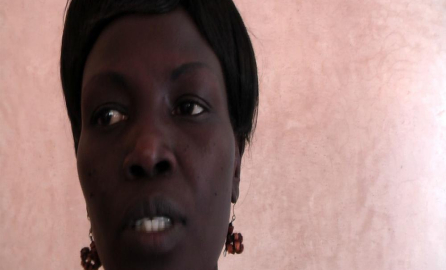Public sector reform is all too often hindered by the perception that change is being imposed from the outside, according to Rebecca Joshua Okwaci, Under Secretary for Ministry of Labour, Public Service and Human Resources in the Autonomous Government of Southern Sudan.
In a fragile situation, when much needs to be done to build capacity, there is a danger that donors can come across as enforces of change rather than enablers of reform.
Rebecca Joshua Okwaci, Under Secretary for Ministry of Labour, Public Service and Human Resources in the Autonomous Government of Southern Sudan, told capacity4dev.eu in a recent interview that giving people the space to learn was essential.
“There has been a lot of challenges and resistance with people thinking that the reforms are not really for them,” said Ms Okwaci. “That they are something from outside.”
The region's autonomous status is a condition of a 2005 peace agreement between the Sudan People's Liberation Movement/Army and the Khartoum-based central Government of Sudan. The deal ended more than two decades of civil war closing one of the longest chapters of internal conflict in Africa.
A good starting point for building in long-term value, said Ms Okwaci, is to maintain a strong focus on training.
“It is very important that the capacity of the people involved in reforms is sharpened,” said Ms Okwaci. “They need their skills, they need the tools.”
With additional focus on training and information sharing the semi-autonomous government was able to foster buy-in to the post-conflict reforms at all levels of the public administration and civil society.
Countries or regions that recently emerged from war, political upset or natural disasters present some of the biggest challenges for development practitioners.
Often complex and fast-changing environments burdened with low capacity, fragile situations require development practitioners to think strategically and keep site of the long-term goals of what is often urgently sought assistance.
In such situations, like Southern Sudan, which has some of the worst health indicators in the world, the need for donor support can be immense. But one of the toughest challenges for donors, is acknowledging the trade-offs involved in intervening in such an environment and striving to be open and honest about such difficulties.
For example, donors rarely arrive in isolation and the mass onset of international aid workers and their associated equipment, offices, agendas – and money - can effect far reaching and not always intended changes.
Donors need to consider the effects of their collective impact, and as much as possible, minimise the worst effects, especially when complications can easily be foreseen. For example, distortion of the labour market is difficult to avoid in fragile situations, but collective impact consideration, and the strategic planning can minimise excessive distortions.


(1)
Log in with your EU Login account to post or comment on the platform.
nice article !